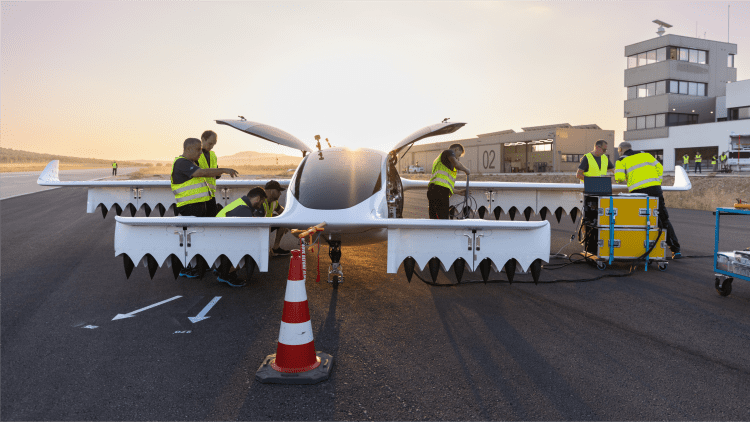
German company Lilium produces flying electric passenger drones.
lily
German aerospace startup lily The company faces bankruptcy if emergency funds are not raised from the state government for the southeastern state of Bavaria.
Bankruptcy would mark a sharp decline for a startup once touted as Europe’s best chance of building a 21st-century flying “car.”
Lilium is one of a series of companies trying to create an “eVTOL” (electric vertical take-off and landing vehicle).
These vehicles, often called flying cars or air taxis, are being developed by startups in the United States, Europe and Asia.
Today, however, Lilium is in trouble. The company is desperately trying to raise taxpayer funds in Germany. And so far, there has been no success.
What happened?
Lilium has been in talks with the German federal government and the Bavarian state government for an emergency capital injection.

The company has applied for a 50 million euro ($54 million) loan from the federal government. However, its request was rejected by German lawmakers.
In a regulatory filing released last week, Lilium said it had “received indications that the Budget Committee of the Parliament of the Federal Republic of Germany will not approve a €50 million guarantee for the proposed €100 million convertible loan.”
The proposed state aid will be disbursed by KfW, Germany’s state-owned development bank.
Lilium added in the filing that “discussions with the Free State of Bavaria on a guarantee of at least 50 million euros are continuing.”
A Lilium spokesperson told CNBC that the company does not intend to comment further beyond the statements outlined in the 6K filing.
In response to Germany’s decision to refuse state aid to Lilium, Bavarian Economics Minister Hubert Aiwanger said: criticize the movesaid it was “regrettable” that the federal government chose not to support the company.
Danijel Višević, co-founder of the Berlin-based Climate Technology Investors World Fund, said that while it was “understandable” for lawmakers to resist backing Lilium due to concerns about the government favoring one company over another, there was a problem among politicians. There is a misguided notion that air taxis are “millionaires’ toys.” The idea, he said, was “too short-sighted.”
Vishevich said it was unfair that U.S. electric car maker Tesla, which burned billions of dollars before turning a profit, was once able to obtain U.S. government loans but Lilium was not.
What Lilium is trying to build
“Flying car” may not be the right term. But what Lilium is ultimately trying to bring to the world is a vertical take-off and landing aircraft that can transport people from one city to another to relieve road congestion.
The company initially hopes to launch its own digital “ride-hailing” service, allowing users to order its planes from designated areas where they can take off and land.
Lilium then decided to change its business model.
Rather than developing the entire service itself, the company has chosen to partner with airlines and airport operators, who will build the service offerings and infrastructure needed to realize its ambitions.
Lilium’s jets cost up to $9 million. The company is also developing a six-seat version, which will cost buyers about $7 million.
Lilium has made major deals with Lufthansa Germany and Saudi Arabia. It has also partnered with Paris-based international airport operator Groupe ADP.
rise and fall
Founded in 2015 by four university students, Lilium quickly gained a reputation as one of Europe’s best-funded air taxi companies.
The company has successfully raised hundreds of millions of dollars in funding from investors including China’s Tencent, Atomico and Earlybird.
In September 2021, Lilium listed on Nasdaq through a merger with a special purpose acquisition company called SPAC Qell.
At its peak, Lilium was worth $3.3 billion. Its stock price has fallen to less than 50 cents, a drop of more than 95% from its first day of trading.








